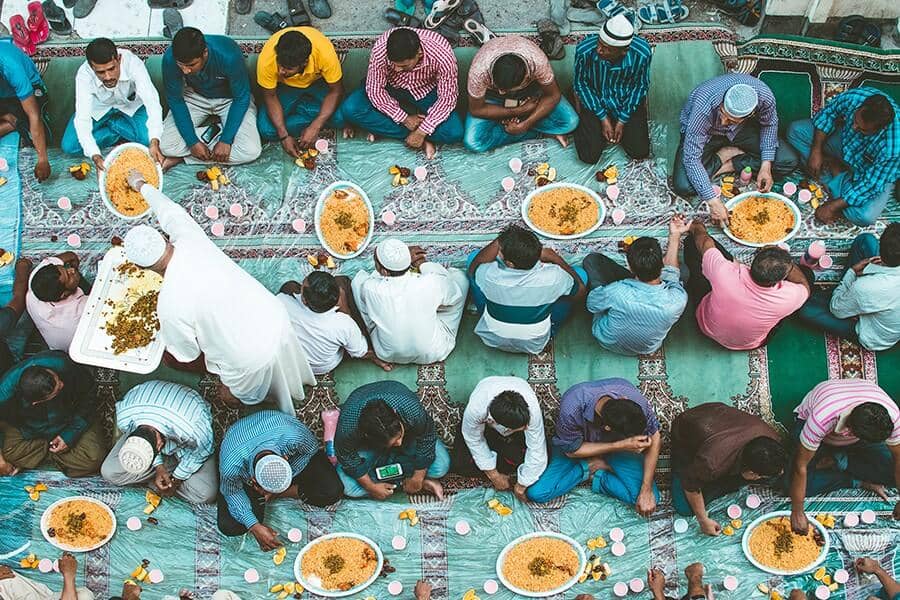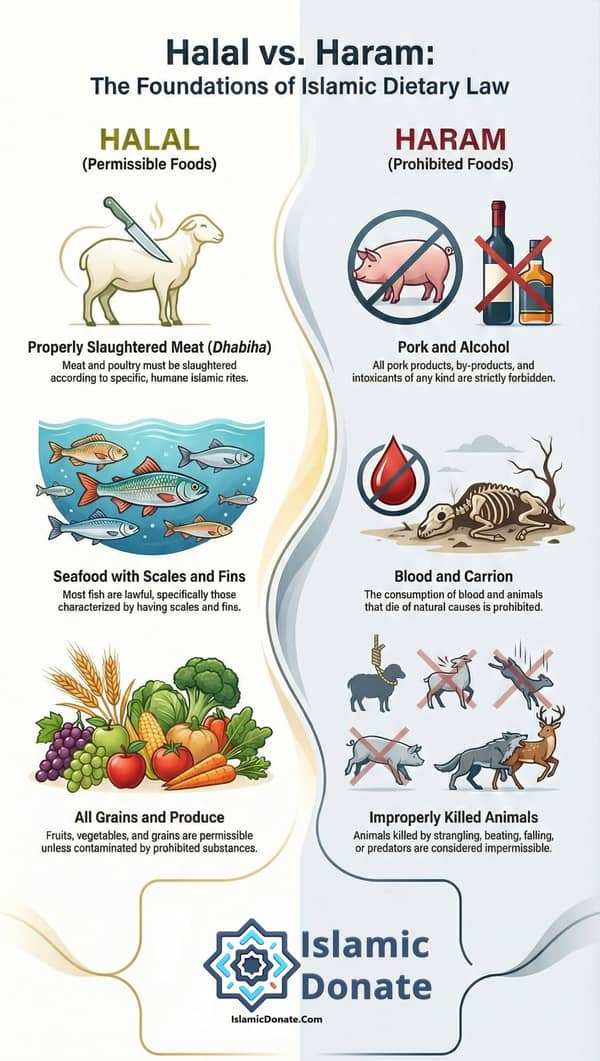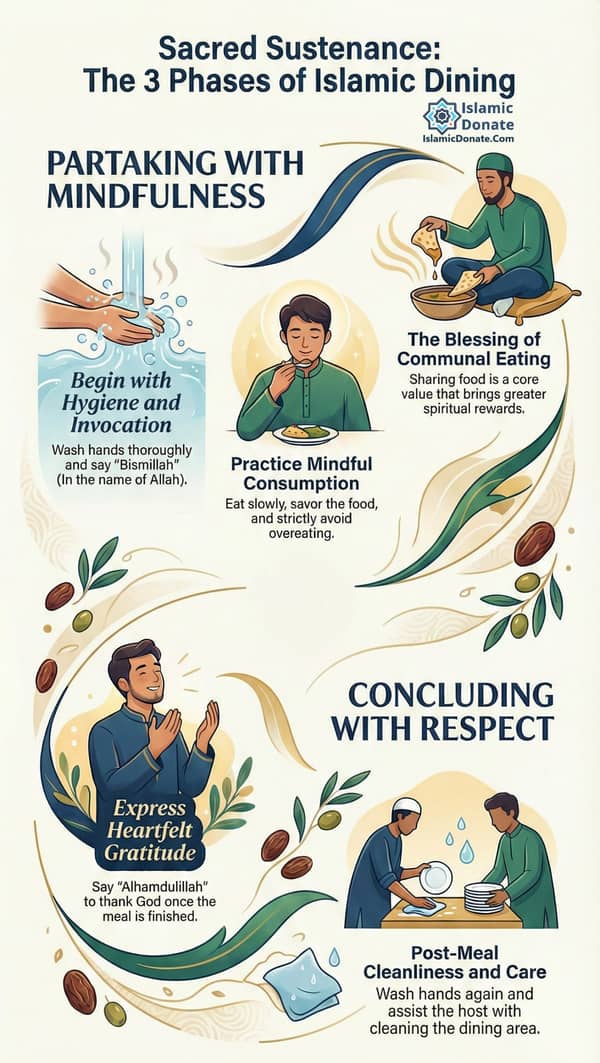Aspects of Muslim Food Culture: A Comprehensive Guide with Hadiths and Verses
Islamic food culture is built on the principles of cleanliness, gratitude, and moderation. These traditions are rooted in religious texts and aim to nourish both the body and the spirit. The following sections outline the essential aspects of dietary habits and etiquette in Islam.
Dietary Categories: Halal and Haram
The Quran and Sunnah establish clear boundaries regarding what is permissible to consume. Allah says in the Quran:
“So eat from the good, lawful things which Allah has provided for you, and be grateful for Allah’s favours, if you truly worship Him alone.” (Quran, 16:114)
Halal (Permissible) Foods
Halal branded products are widely available in modern stores. To ensure compliance and avoid confusion, refer to the following list of permissible items:
- Meat and Poultry: Animals must be slaughtered according to specific Islamic rites, known as dhabiha, to ensure the process is humane and sanitary.
- Seafood: Most fish are generally considered lawful. Generally permissible, except for those without scales and fins.
- Produce and Grains: All fruits, vegetables, grains, and legumes are permissible unless they are contaminated by prohibited substances.
- Dairy: Products such as milk, yogurt, and cheese are allowed.
Haram (Prohibited) Foods
Prohibited items must be avoided entirely. Even small amounts of these substances can make a dish impermissible for consumption. Allah says in the Quran:
“Forbidden to you are carrion, blood, and swine; what is slaughtered in the name of any other than Allah; what is killed by strangling, beating, a fall, or by being gored to death; what is partly eaten by a predator unless you slaughter it; and what is sacrificed on altars…” (Quran, 5:3)
- Pork: All pork products and by-products are strictly forbidden.
- Alcohol: Intoxicants of any kind are prohibited.
- Improperly Slaughtered Animals: Animals that die of natural causes, are killed by wild beasts, or are not slaughtered according to religious requirements are not allowed.
- Blood: The consumption of blood and its products is prohibited.
- Carrion: Dead animals not slaughtered according to Islamic law. Animals strangled, beaten to death, killed by a fall, or killed by a wild animal.
Eating Etiquette in Islam
Islam provides a structured approach to meals that emphasizes hygiene and mindfulness.
- Before Starting a Meal: Practitioners are encouraged to wash their hands thoroughly before eating. It is also customary to invoke the name of God by saying “Bismillah,” which means “In the name of Allah.”
- Mindful Consumption: Eat slowly, savor your food, and avoid overeating.
- During the Meal: Sitting properly and avoiding excessive talking allows for a focused and respectful dining experience. Sharing food is a significant cultural value, as the Prophet Muhammad taught that communal eating brings greater blessings.
- After the Meal: Once a meal is finished, it is important to express gratitude to Allah by saying Alhamdulillah (ٱلْحَمْدُ لِلَّٰهِ). Standard etiquette also includes washing the hands again and assisting with the cleanup of the dining area to show respect for the host and the household.
The Role of Moderation and Health
Islamic teachings discourage overindulgence. The Prophet Muhammad advised that the stomach should be divided into three parts: one for food, one for water, and one for air (Ibn Majah, 3349). This practice supports physical health and prevents lethargy. Food is viewed not just as fuel, but as a gift that should be used to maintain a healthy body capable of performing worship and serving the community.
Charity and Community (Ummah)
A central pillar of Muslim food culture is the responsibility to feed others. Access to food is considered a basic human right. Those who have more than they need are encouraged to support the hungry through direct aid or financial contributions like Zakat and Sadaqah. Messenger of Allah (ﷺ) said:
“Food for one (person) suffices two, and food for two (persons) suffices four persons and food for four persons suffices eight persons.” (Sahih Muslim, 2059)
By sharing resources, the community strengthens its bonds and fulfills its religious obligations to care for the less fortunate. The act of feeding the hungry, whether through direct provision or financial support, is considered a noble deed with immense rewards in the Hereafter. You can also contribute to donating cryptocurrency for food relief. By caring for the less fortunate, Muslims embody the spirit of compassion and unity that lies at the heart of their faith.





